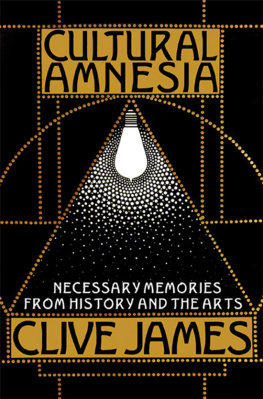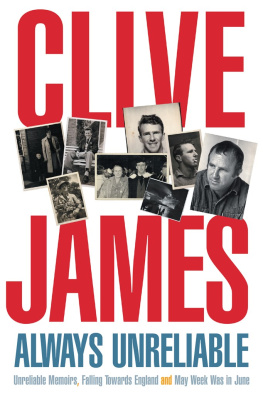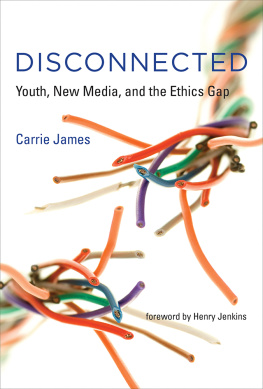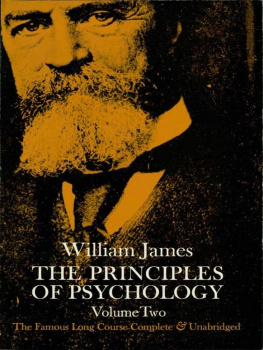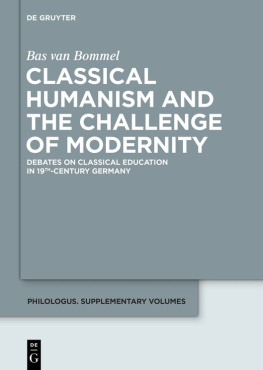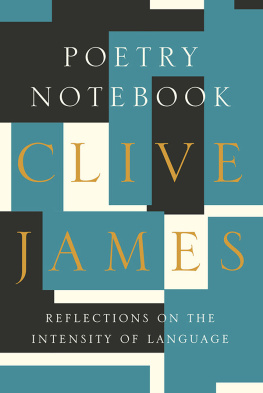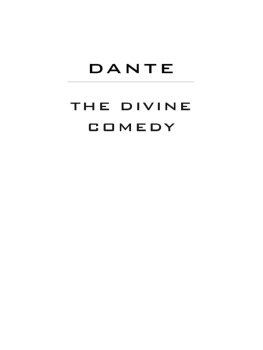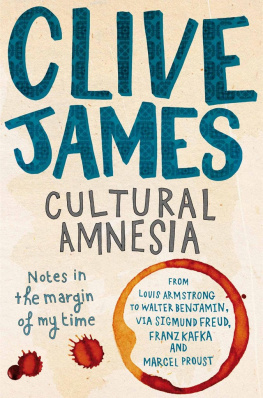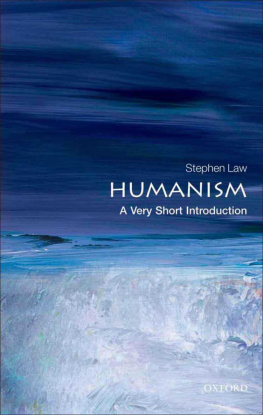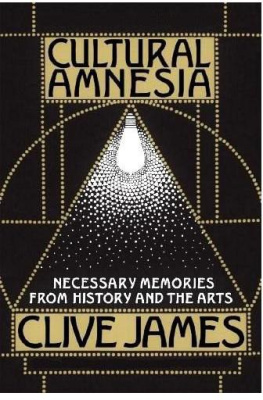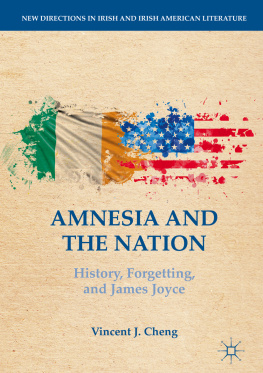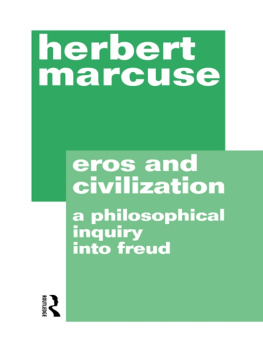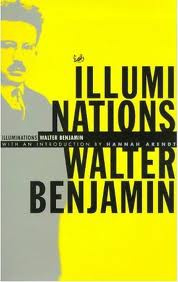
Copyright 2007 by Clive James
Published by arrangement with Macmillan Publishers Ltd, Great Britain
All rights reserved
First Edition
For information about permission to reproduce selections from this book, write to Permissions, W. W. Norton & Company, Inc., 500 Fifth Avenue, New York, NY 10110
Book design by Chris Welch
Production manager: Anna Oler
The Library of Congress has cataloged the printed edition as follows:
James, Clive, 1939
Cultural amnesia ; necessary memories from history and the arts / Clive James
p. cm.
Includes index.
ISBN-13: 978-0-393-06116-1 (hardcover)
ISBN-10: 0-393-06116-7 (hardcover)
1. Civilization, Western. 2. IntellectualsBiography. 3, ArtistsBiography. 4. MusiciansBiography. 5. PhilosophersBiography. 6. Intellectual lifeHistory20th century. 7. HumanismHistory20th century. 8. MemorySocial aspects. I. Title.
CB245.J338 2007
909'.09821dc22
2006036398
ISBN 978-0-393-33354-1
ISBN 978-0-393-28542-0 (e-book)
W. W. Norton & Company, Inc., 500 Fifth Avenue
New York, N.Y. 10110
www.wwnorton.com
W. W. Norton & Company Ltd., Castle House, 75/76 Wells Street
London W1T 3QT
I SHOULD THANK Peter Straus, at that time Picadors chief editor in London, for listening to my first idea of this book and thinking it might be worth a try. Andrew Kidd, who succeeded to the command post at Picador, also deserves thanks for trusting me when I kept on saying that the only way I could define the book was that it would define itself. My deepest and longest thanks, however, must surely go to Robert Weil of W. W. Norton, who not only believed in the project from its formative stages, but gave it knowledgeable and detailed editorial attention from page to page as it steadily accumulated in his office on Fifth Avenue. If things got to the point that he had to schedule an editorial session for his flight back to New York from a conference in China, still he did not give up, and every comment he made in the margin was pertinent. In the spiritual sense, this book would not be the same without him: he was its ideal reader. In the physical sense, it would not be here at all without Ccile Menon. In her plural role as my secretary, assistant, Webmeisterin, chief executive officer and personal trainer, she found time, among her many other tasks, to teach me the computer skills without which any hypertext becomes a runaway train. In most cases, teaching me consisted in realizing once again that I was a hopeless case, and she simply pressed the buttons needed to save the day. To take a single point, it took her no more than two minutes to track down exactly what Cocteau said about the chameleon on the tartan. Thus she saved me desperate hours, and I can only hope that this book will be of as much use to her generation of hungry young culture-vultures as her brilliance and diligence have been to me. A final but vital acknowledgement should go to my copy editor, Trent Duffy, who, as well as spotting ambiguities lurking in the syntax, saved me from many serious blunders, including the results of my irritating mental habit of writing Milos Forman for Louis Mallea conspicuous instance of the embarrassing phenomenon known to clinical psychologists as the Malle-Forman malformation.
A book of this kind can be especially taxing in its very last stages of preparation, when the correcting of details persistently adds more details to be corrected. But without the generous donation of time by family members and family friends, far too many blunders on my part would have been enshrined in print. It took Tom Mayer at Norton, however, to ensure that the process of correcting the corrections did not finish off the author along with the book, and I thank him with a whole heart, if not quite, any longer, a whole mind.
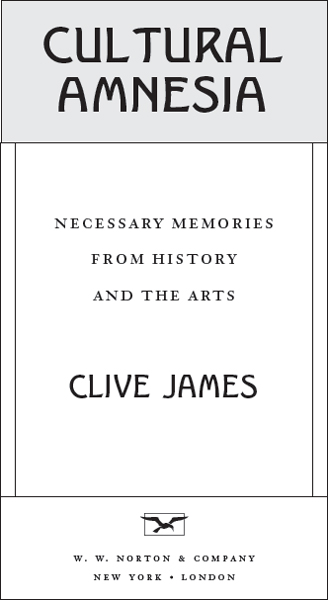

Anna Akhmatova
Peter Altenberg
Louis Armstrong
Raymond Aron
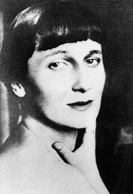

Born in Odessa, educated in Kiev and launched into poetic immortality as the beautiful incarnation of pre-revolutionary Petersburg, Anna Akhmatova (18891966) was the most famous Russian poet of her time, but the time was out of joint. Before the Bolshevik Revolution in 1917, Anna Andreyevna Gorenko, called Akhmatova, already wore the Russian literary worlds most glittering French verbal decorations: her work was avant-garde, and in person she was a femme fatale. Love for her broken-nosed beauty was a common condition among the male poets, one of whom, Nikolay Gumilev, she married. After the Revolution, Gumilev was one of the new regimes first victims among the literati: the persecution of artists, still thought of today as a Stalinist speciality, began under Lenin. Later on, under Stalin, Akhmatova included a reference to Gumilevs fate in the most often quoted part of her poem Requiem. (Husband dead, son in gaol / Pray for me.) In the last gasp of the Tsarist era she had known no persecution worse than routine incomprehension for her impressionistic poetry and condemnation by women for her effect on their men. The Russia of Lenin and Stalin made her first a tragic, then an heroic, figure. After 1922 she was condemned as a bourgeois element and severely restricted in what she could publish. After World War II, in 1946, she was personally condemned by Andrey Zhdanov, Stalins plug-ugly in charge of culture. She was allowed to publish nothing new, and everything she had ever written in verse form was dismissed as remote from socialist reconstruction. Her prestige abroad helped to keep her alive at home, but also ensured that her life could never be comfortable: the security police were always on her case. In the 1950s she was rehabilitated to the extent that a censored edition of her collected poems was officially published. (Requiem was among the poems missing: Isaiah Berlin, who visited her in Moscow in 1946, was correct when he predicted that it would never be published in Russia as long as the Soviet Union lasted.) Unofficially, however, her work had always circulated, whether in samizdat or, in that peculiarly Russian tribute to greatness, from mouth to mouth, by memory. Akhmatova was the embodiment of the Russian liberal heritage that the authoritarians felt bound to go on threatening long after it had surrendered. As such, she was an inspiring symbol, but when a poet becomes better known than her poems it usually means that she is being sacrificed, for extraneous reasons, on the altar of her own glory. In Akhmatovas case, the extraneous reasons were political. It should be a mark of reasonable politics that a woman like her is not called upon to be a heroine.

This lyrical wealth of Pushkin...
ANNA AKHMATOVA, PUSHKINS STONE GHOST
S OME LANGUAGES ARE inherently more beautiful than others, and Russian is among the most beautiful of all. For anyone learning Russian, a phrase like lyrical wealth comes singing out of the page like a two-word aria from an opera by Moussorgsky. I noted it down as a soon as I saw it. In 1968 the West German publishing house that called itself Inter-Language Literary Associates produced a magnificent two-volume collection of Akhmatovas works in verse and prose. I bought those books in London in 1978, when I was in my first stage of learning to read the language. I never got to the last stage, or anywhere near it: but I did reach the point where I could read an essay without too much help from the dictionary. (Memo to any student making a raid on the culture of another language: essays are always the easiest way in.) Reading Akhmatovas essays, it was soon apparent that she would have been an excellent full-time critic of literature if she had been given permission. But of course she wasnt, which brings us immediately to the point.
Next page
